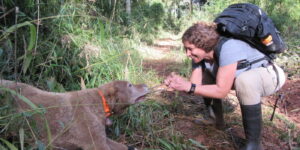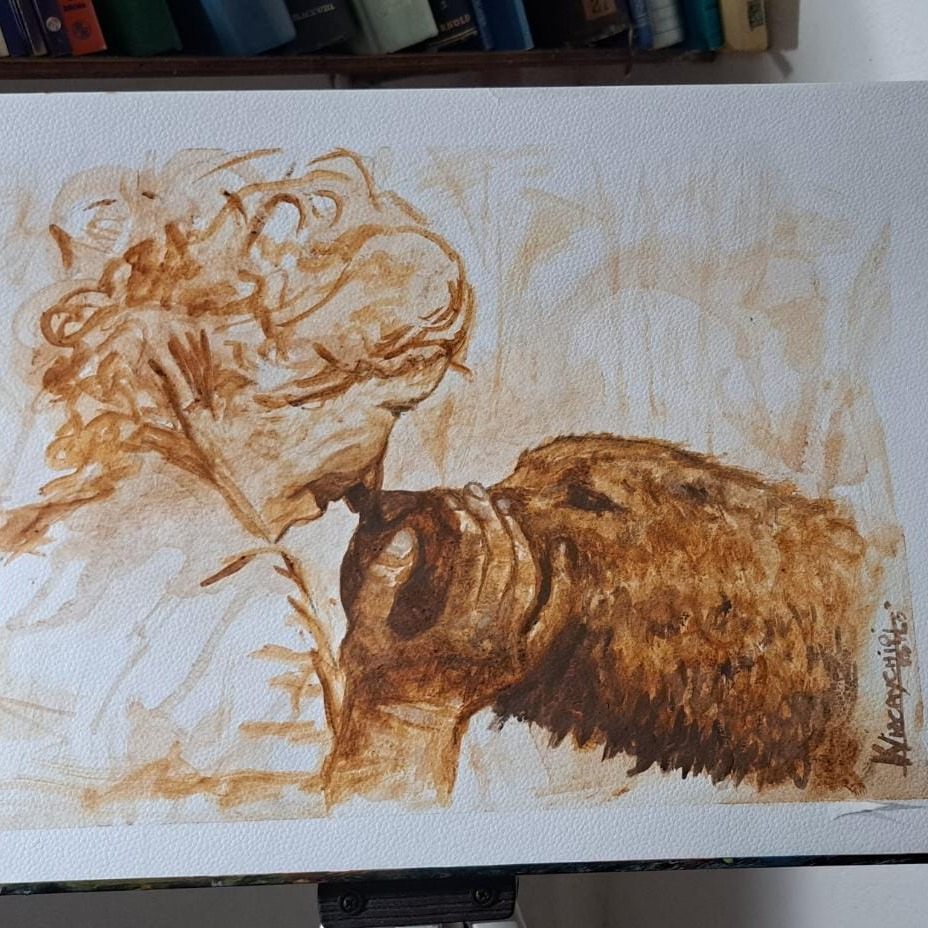Officials in Argentina are building a statue to recognize the work of Train, a rescue dog who contributed to significant conservation research by a WashU scientist.
Train — a tireless and dedicated Chesapeake Bay retriever — never had an official faculty or staff position at WashU, but he took his research work seriously. This July, the Ministry of Ecology and Renewable Natural Resources in the province of Misiones, Argentina, will be unveiling his statue, a testament to his amazing life and contributions to conservation.

A rescue dog who was adopted from the Humane Society, Train passed away in September at the age of 16 (give or take). Still, his legacy continues. In April, the scientific journal PLoS ONE published the latest results of his labors: a study led by his companion and research collaborator, Karen DeMatteo, senior lecturer in environmental studies in Arts & Sciences.
Train’s ability to sniff out key carnivores in the forests of northeast Argentina was crucial for a study of wildlife habitat, DeMatteo says. The study underscored the resilience and adaptability of the carnivores — important indicators of ecosystem health — and helped identify the areas in most critical need of protection. “Train is responsible for 100% of the data,” she says.
Detection dogs like Train are an efficient and effective way to find and count elusive animals over large areas — something like a camera trap with legs. His sharp senses identified animals in surprising places.
